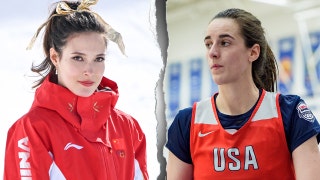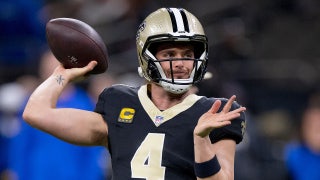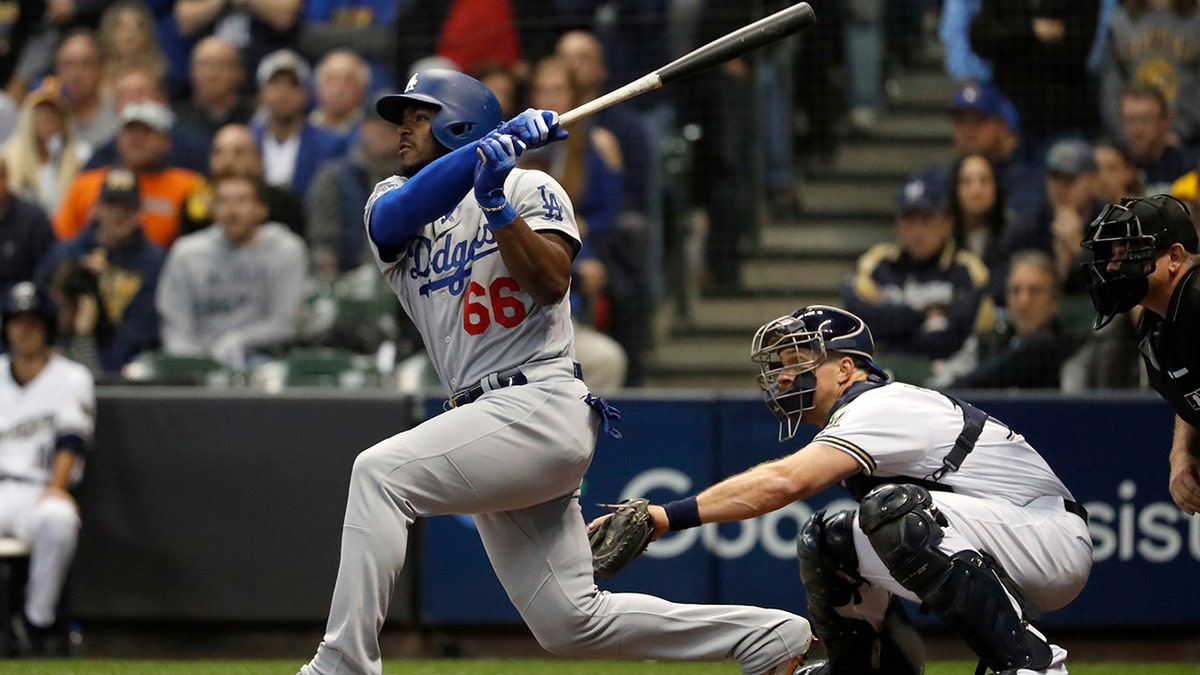
Los Angeles Dodgers slugger Yasiel Puig defected from Cuba in 2012. (AP Photo/Jeff Roberson)
Major League Baseball, its players union and the Cuban Baseball Federation reached an agreement Wednesday that would let players from the island sign with big-league clubs without having to defect from the Communist nation.
"For years, Major League Baseball has been seeking to end the trafficking of baseball players from Cuba by criminal organizations by creating a safe and legal alternative for those players to sign with major league clubs," baseball Commissioner Rob Manfred said in a statement Wednesday. "We believe that this agreement accomplishes that objective and will allow the next generation of Cuban players to pursue their dream without enduring many of the hardships experienced by current and former Cuban players who have played Major League Baseball."
The agreement, which runs through Oct. 31, 2021, allows Cuban players to sign under similar rules to those that govern the acquisition of players from Japan, South Korea and Taiwan.
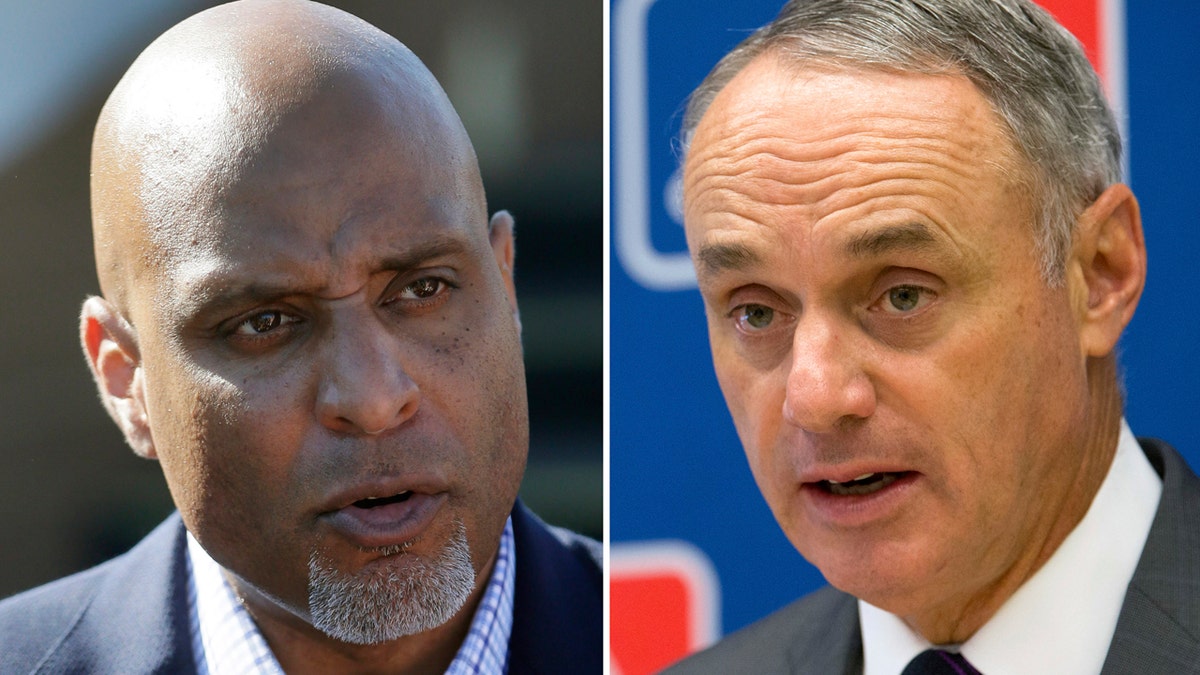
Major League Baseball Players Association executive director Tony Clark, left, and Commissioner Rob Manfred. (AP Photo/File)
As part of the deal, the Cuban federation agreed to release all players 25 and older with at least six years of professional experience. Those players would be classified as international professionals under MLB's labor contract and not subject to international amateur signing bonus pools.
The Cuban federation may at its discretion release younger players to sign minor league contracts with MLB organizations. Any disputes between MLB and the Cuban federation are subject to resolution by the International Chamber of Commerce.
"Establishing a safe, legal process for entry to our system is the most important step we can take to ending the exploitation and endangerment of Cuban players who pursue careers in Major League Baseball," MLB Players Association Executive Director Tony Clark said. "The safety and well-being of these young men remains our primary concern."
A player can decide whether he wants a registered MLBPA agent to negotiate a major league contract. He may use a representative other than an agent to negotiate a minor league deal.
Any players allowed to sign with big-league clubs can do so without leaving Cuba, and the fee paid by the signing team will be covered by the same rules as in MLB's other posting systems: 20 percent of the first $25 million of a major league contract, 17.5 percent of the next $25 million and 15 percent of any amount over $50 million. There will be a supplemental fee of 15 percent of any earned bonuses, salary escalators and exercised options.
PENNY MARSHALL WAS IN LEAGUE OF HER OWN AS SPORTS FAN AND MEMORABILIA COLLECTOR
For minor league contracts, the fee will be 25 percent of the signing bonus, and there will be a supplemental fee for any foreign professionals who at first agree to minor league deals that include major league terms that later come into force.
A former Cuban federation player under contract to an MLB club may return to Cuba during the offseason. He can play in Cuba during the offseason only with his MLB club's consent.
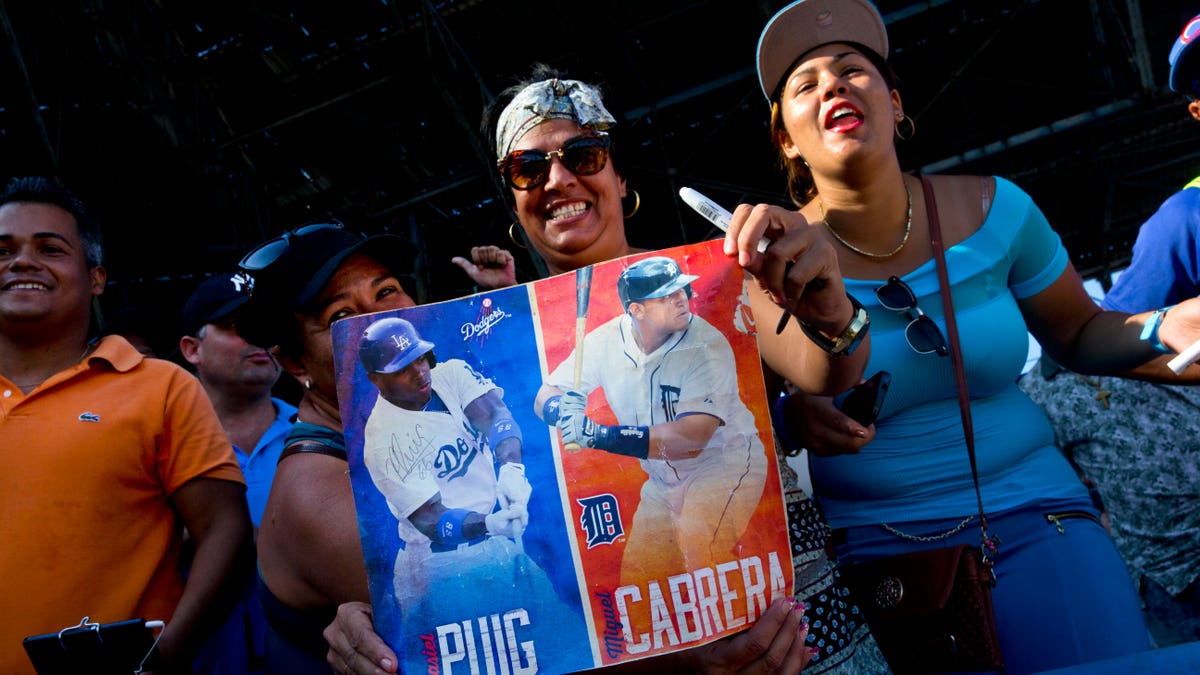
Fans hold photos of Puig and Miguel Cabrera before the players hold a baseball clinic with children in Havana in December 2015. (AP Photo/Ramon Espinosa)
The agreement was criticized by Rep. Mario Diaz-Balart, R-Fla., who was born to Cuban parents.
"Like all people, Cuban baseball players should be free to negotiate their own terms and wages," Diaz-Balart tweeted. "MLB's reported proposal to cede their rights to the regime in Cuba, which profits from the players' labor, institutionalizes their exploitation. MLB should not be a party to the shameless exploitation of Cuban baseball players to enrich a brutal, anti-American dictatorship."
The departure of young Cuban players to MLB has slowed since limits were placed on signing bonuses for international amateurs starting July 2, 2017.
For 2017-18, outfielder Julio Pablo Martinez got $2.8 million from Texas, and the only other signing bonus over $300,000 for a Cuban-born amateur was $750,000 for shortstop Eddy Diaz (Colorado).
In the current signing period, the largest signing bonus for a Cuban-born amateur has been $975,000 for outfielder Jairo Pomares with San Francisco.
Depending on the quality of future players, the agreement could mean millions of dollars in future income for the cash-poor Cuban federation, which has seen the quality of players and facilities decline in recent years as talent went overseas. It marks a step forward in U.S.-Cuba relations during a time of tensions between Cuba and the Trump administration, which has pledged to undo former President Barack Obama's strengthening of relations with the island.
The Associated Press contributed to this report.






